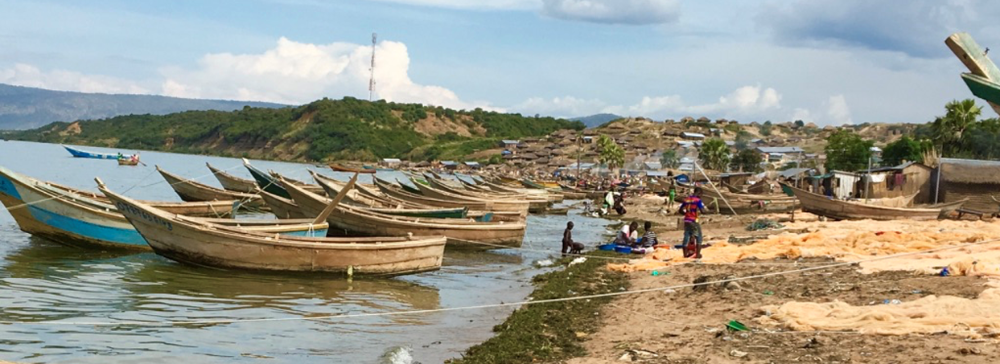Pelibigo
PELIBIGO
Capacity building to promote sustainable governance of petroleum resources, biodiversity and livelihoods in East African communities

East African countries are on the brink of becoming oil and gas producers. Oil and gas discoveries are considered by political leaders, investors and general public as promising means for fuelling economic growth, employment and development. However, there has also been voiced concern and criticism over current and future oil and gas sector activities from environmentalists, human rights activists and civil society..
The spatial geographies of the new oil and gas resources in East Africa do render some special challenges as oil resources lie within or near protected areas that support terrestrial and aquatic biodiversity of global importance. In Uganda oil discoveries are located in biodiversity rich areas in the Albertine graben, much of it within the borders of protected areas (e.g. Murchison Falls and Mount Rwenzori National Park). In Tanzania, attention has so far been directed towards off-shore exploration, but licenses have also been granted inland covering biodiversity rich habitats including the Selous Game Reserve.
Socially acceptable and ecological sustainable development of petroleum resources will depend on the capacity of both governmental agencies and other actors to recognize and handle new and conflicting agendas and demand linked to biodiversity management and sustainable rural livelihoods. Making informed decisions on how to sustainably manage both the renewable and finite non-renewable petroleum resources requires knowledge and capacity to evaluate trade-offs and harness synergies between development and sustainable management and governance of all the existing resources within the landscape. Education programs in oil and gas have so far been addressing critical needs in natural sciences and engineering with limited inquiry into the political, ethical, social, and environmental dimensions of oil and gas exploration activities. Fortunately, the need to build capacity and competence has been recognized at both national and international levels. These concerns now have to be matched by on ground actions to keep pace with the changing human, institutional and governance challenges in new oil-based economies.
In order to address these issues the project focus on four closely interlinked issues both as regards teaching and research activities; i) biodiversity conservation, ii) environmental monitoring and transparency, iii) impact on rural livelihood and iv) gender aspects of petroleum activities. The project is a collaboration between University of Makerere, Uganda,University of Dodoma, Tanzania, Norwegian University of Science and Technology, Norwegian University of Life Sciences. The project is funded by ENPE - The Norwegian Programme for Capacity Development in Higher Education and Research for Development within the Fields of Energy and Petroleum (2015-2020). So far nine master candidates from NTNU, Makerere, and NMBU within the fields of Geography, Development studies and Biology has completed their work. Four PhD candidates are in progress (2 UDOM, 1 Makerere, 1 NTNU)
For more information contact:
Charlotte Nakakaawaj: Jjunju: charlotte.jjunju@ntnu.no
Haakon Lein: haakon.lein@ntnu.no
